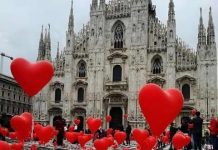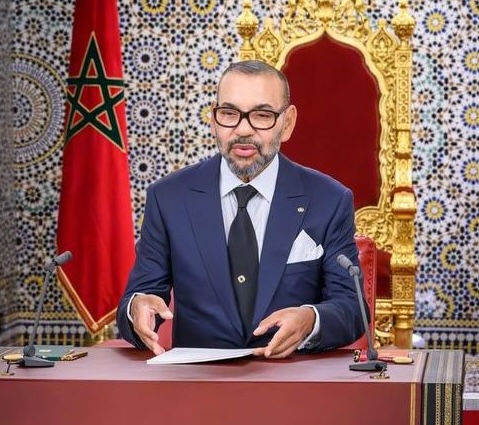“Over the past 25 years, Morocco has emerged as a leading example of sustainable development in the Global South”
Edited by Anna Popper
Celebrating the accession to the throne of His Majesty King Mohammed VI, who succeeds the reign of his father, King Hassan II. The coronation of King Mohammed VI, held in Rabat on 30 July 1999, is a profound symbol of the enduring bond between the Moroccan people and the Alawite dynasty, which has reigned for nearly 400 years since its founding in the 17th century. This day reflects the steadfast loyalty and allegiance that Moroccans have upheld toward the Sovereign for centuries.
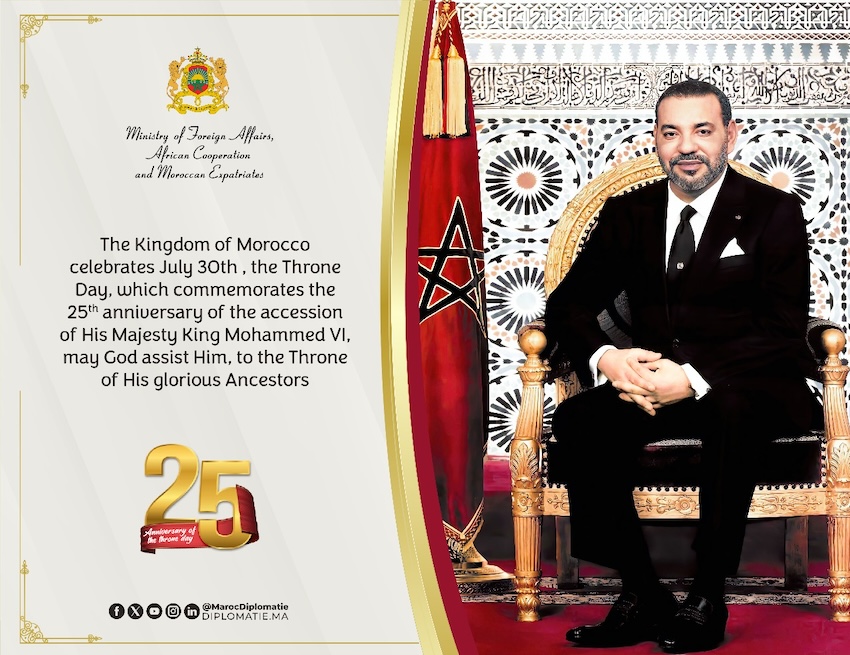
Throne Day is not only a time to celebrate Morocco’s progress and look forward to a future of continued social and economic development under the leadership of King Mohammed VI, but also to reflect on the challenges ahead in realising His Majesty’s vision for a modern and prosperous nation. The day is marked by military parades, fireworks and lively street festivities across Morocco, and similar celebrations take place in Moroccan communities worldwide.
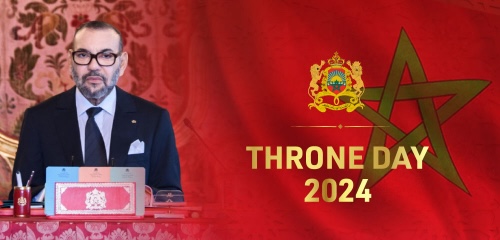
As part of the annual tradition marking the 25th Throne Day, His Majesty King Mohammed VI has granted royal pardons to 2,476 prisoners. This gesture is a profound expression of mercy, embodying the values of forgiveness and social reintegration. Through acts of clemency, the King highlights the significance of compassion and reaffirms the monarchy’s dedication to strengthening ties between the throne and the Moroccan people.

In honour of the Throne Day, the Embassy of the Kingdom of Morocco in Hungary commemorated both the 25th Anniversary of His Majesty King Mohammed VI’s Enthronement and the 65th anniversary of diplomatic relations between Morocco and Hungary with a grand reception and musical performance on the 30th July.
The event was held at the Hungarian House of Heritage in Budapest and was hosted by Her Excellency Ms. Karima Kabbaj, Ambassador of the Kingdom of Morocco to Hungary, who also serves as Dean of the Arab Ambassadors’ Council and Dean of the Group of African Ambassadors in Hungary.
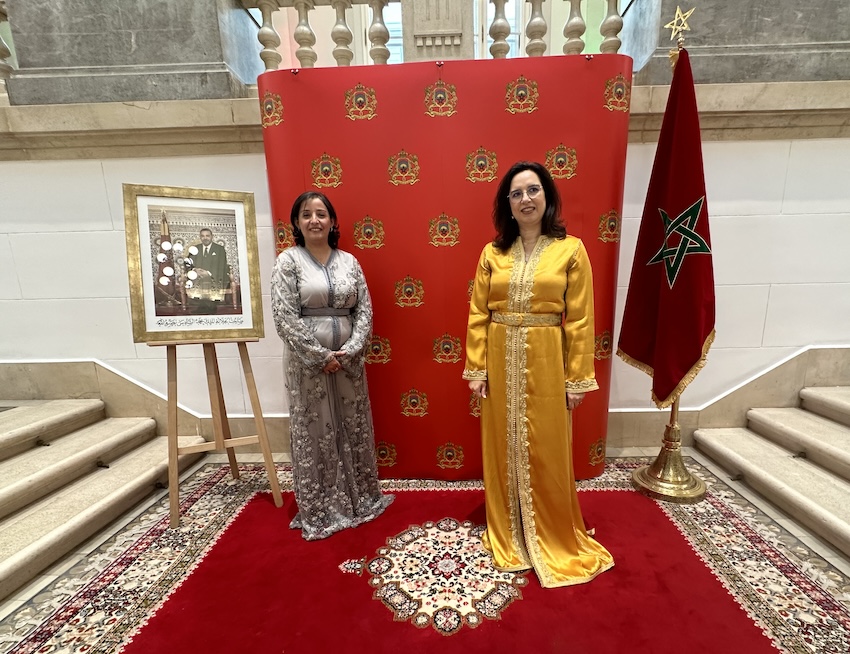
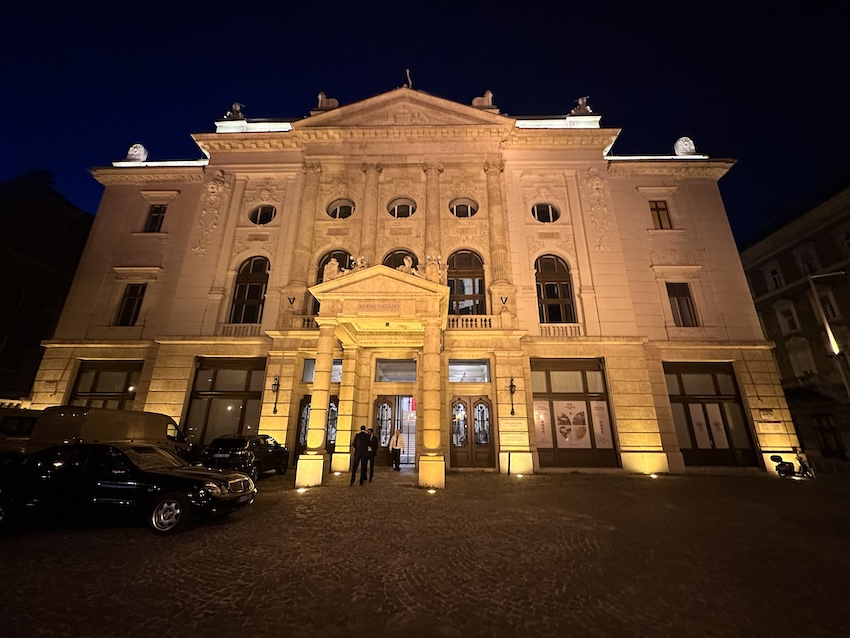
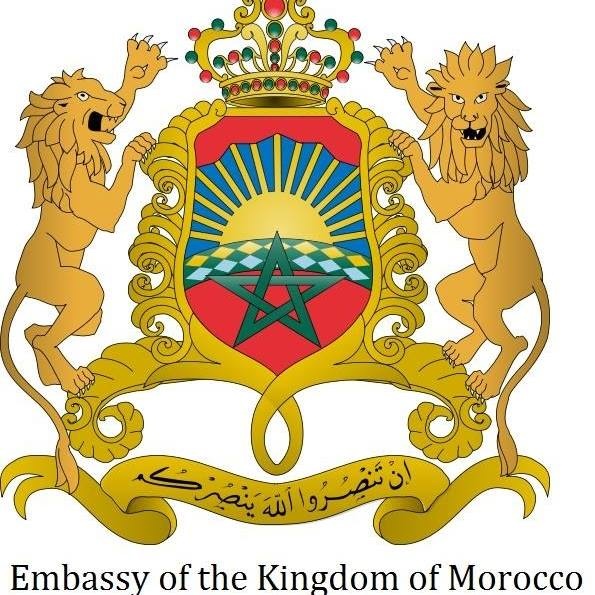
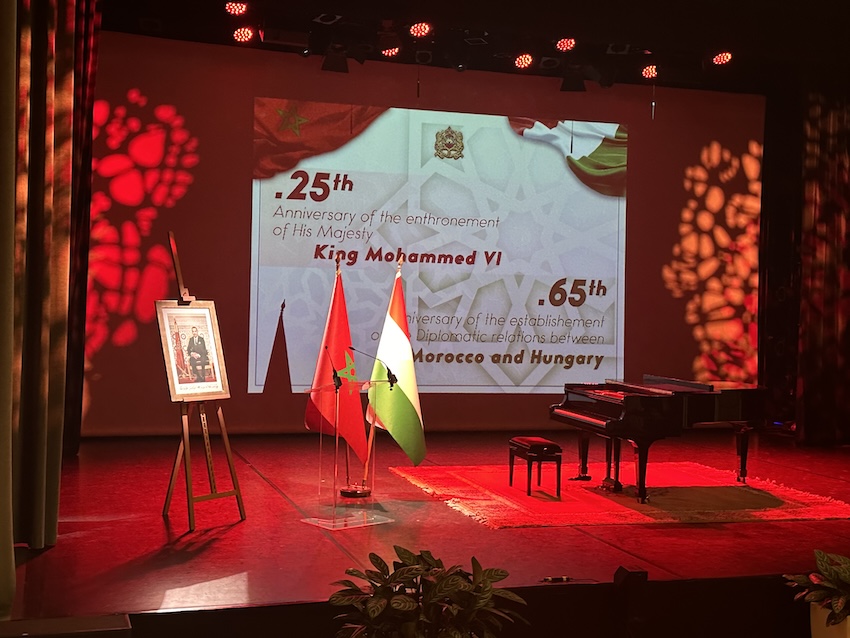
The festive occasion was graced by the presence of the Guest of Honour Dr. Zsolt Semjén, Deputy Prime Minister of Hungary, along with a large number of distinguished guests, including senior Hungarian officials, members of the diplomatic corps, and representatives from cultural, academic and business sectors. Moroccan students in Hungary and friends of Morocco were also in attendance.
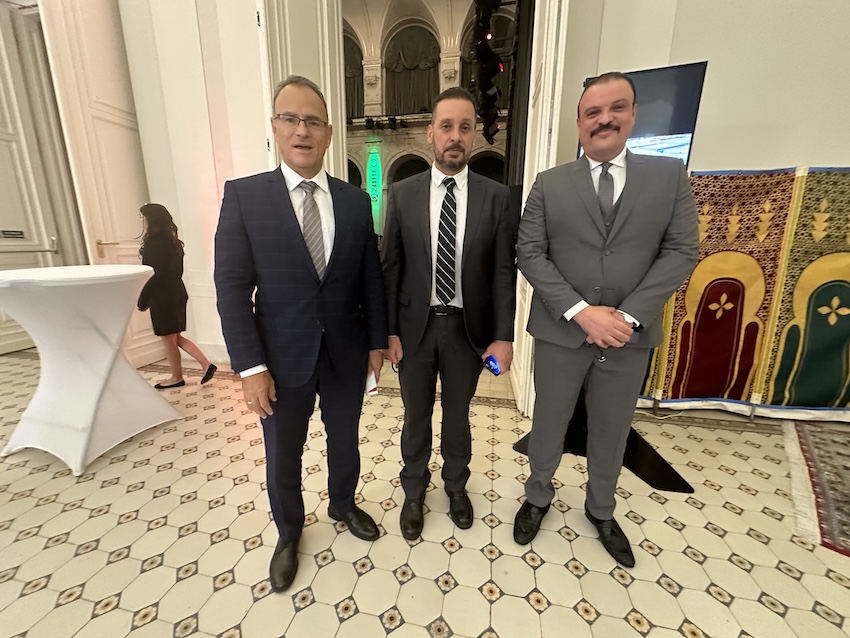
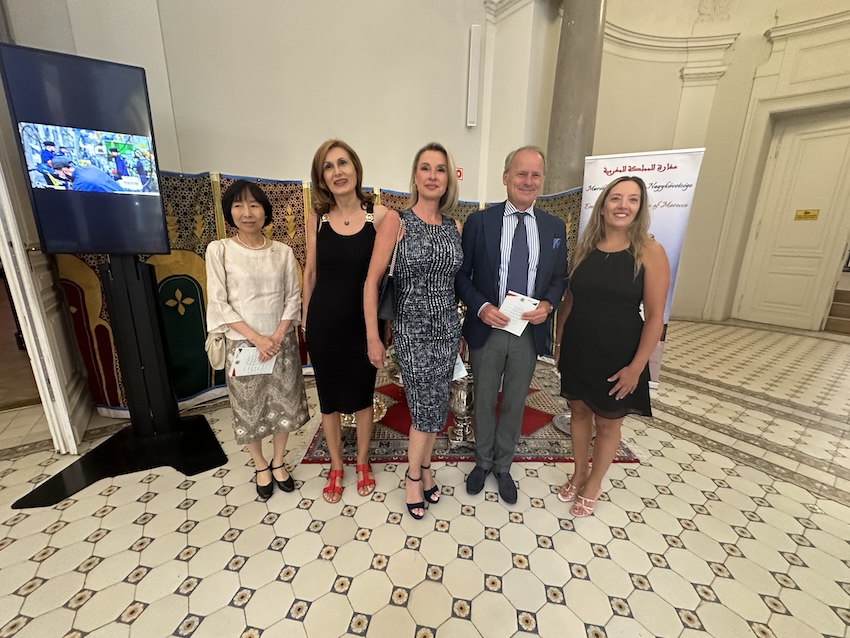
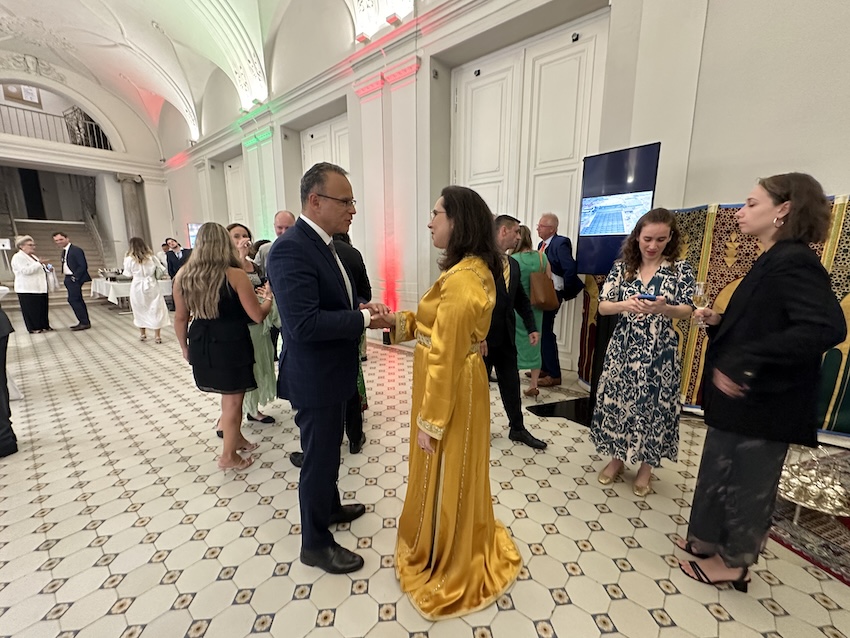
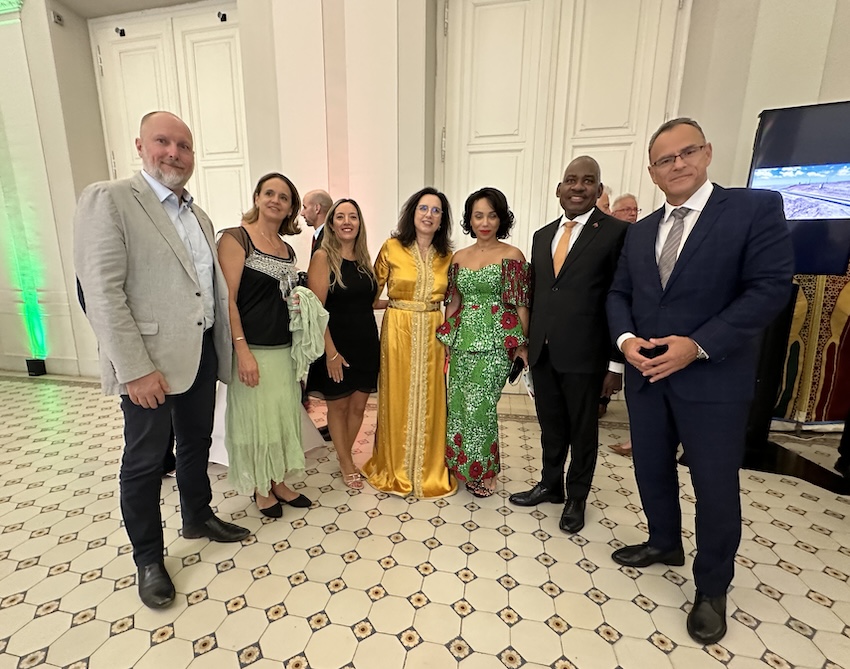
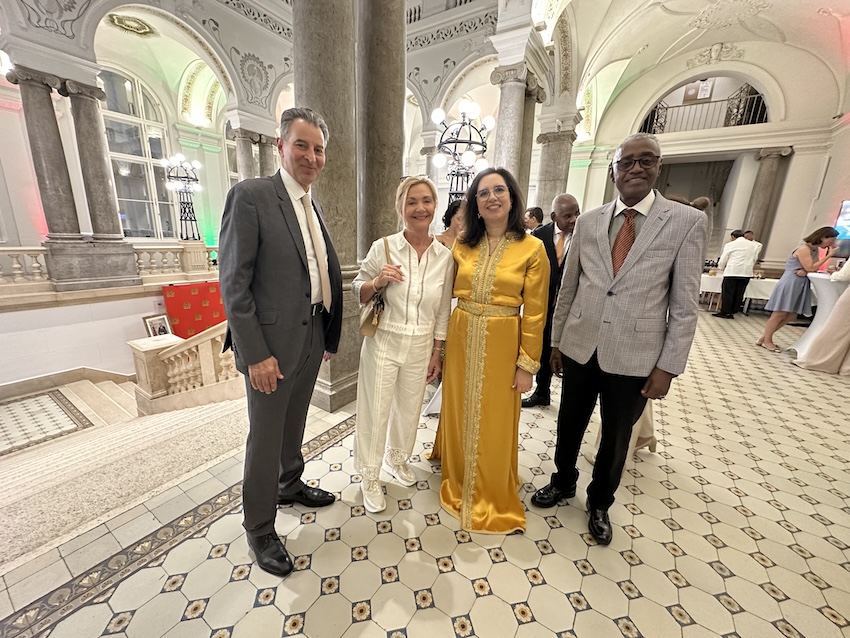
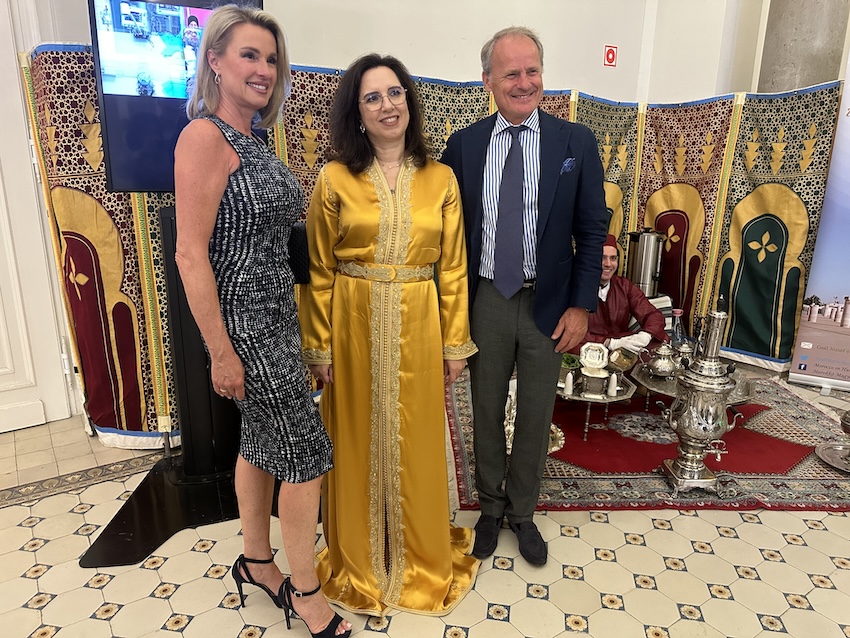

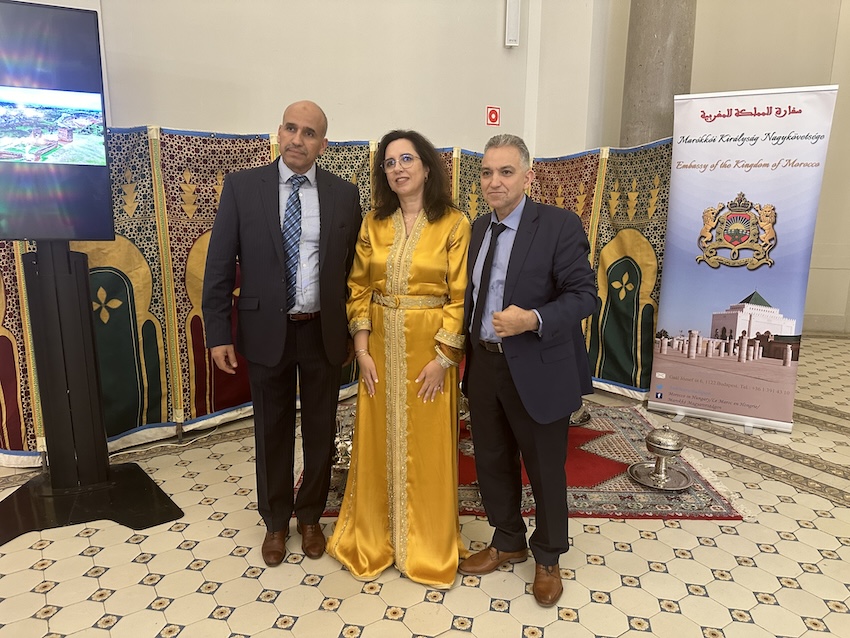
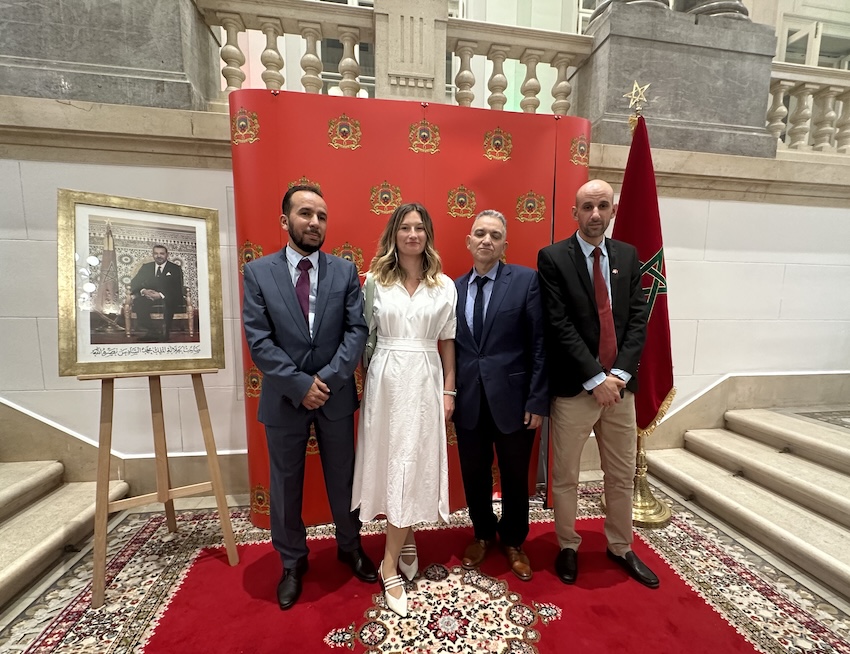
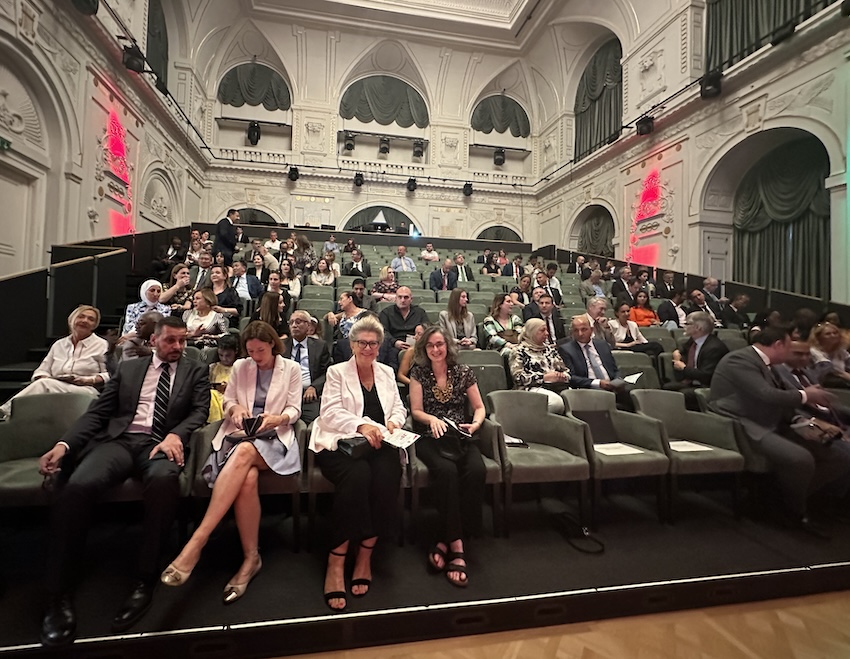
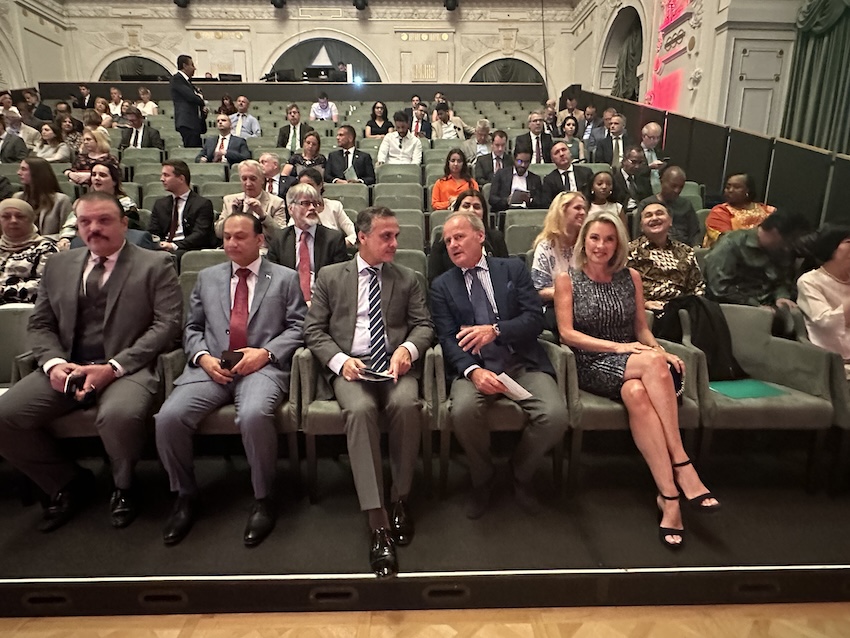
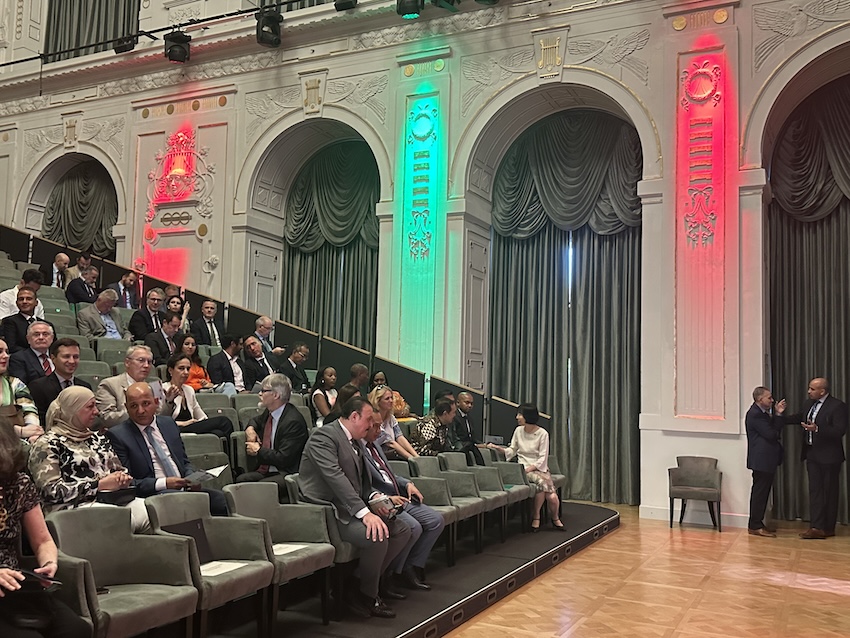
The celebration began with the national anthems of Morocco and Hungary.
Her Excellency Ambassador Karima Kabbaj then took the stage in the beautifully decorated theatre hall to warmly welcome the audience. In her remarks, she underscored the significance of Throne Day, paying tribute to the enduring bond between Morocco and its people, while highlighting the excellent and long-standing relations between Morocco and Hungary:
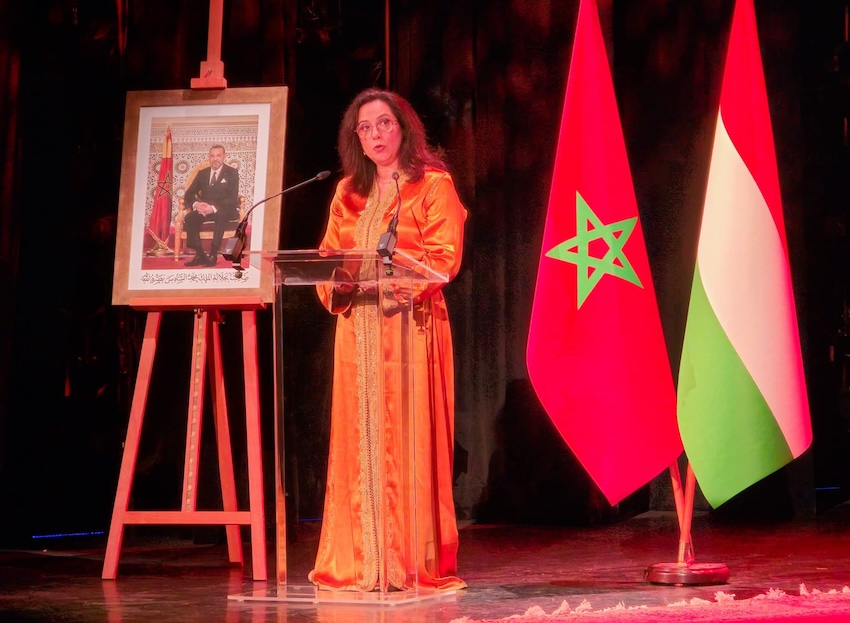
“Honourable Deputy Prime Minister, Excellencies, Distinguished Guests, Colleagues and Friends, Ladies and Gentlemen,
Allow me to welcome you all this evening and to thank you for being here to celebrate with us this momentous occasion, which holds immense significance for the Moroccan people, as it marks the 25th anniversary of His Majesty King Mohammed VI’s accession to the Throne of his glorious ancestors, at the iconic Hungarian House of Heritage, in which we also commemorate 65 years of diplomatic relations between Morocco and Hungary.
I would like to seize the opportunity to thank our Guest of Honour, Dr. Zsolt Semjén, Deputy Prime Minister of Hungary, for joining us in today’s celebration.
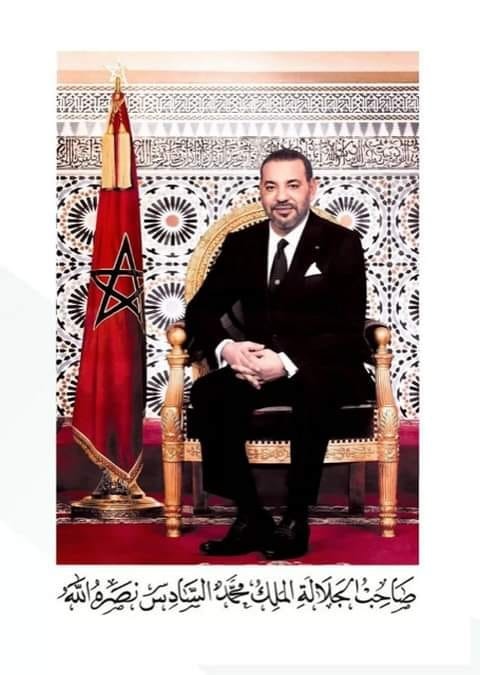
The Throne Day symbolises the enduring unity and cohesion between the Sovereign and the Moroccan people, reflecting a nation dedicated to its values of peace, tolerance, solidarity, diversity and progress, and fully committed to its sovereignty and territorial integrity.
Today, we reflect on the remarkable journey our beloved country has taken under the visionary leadership of His Majesty. From the beginning of his reign, His Majesty made social issues his main concern, placing the family, and in particular women and children, at the centre of his interests. In this regard, major projects and reforms were implemented as steps to reduce inequalities, with the ultimate goal of gender equality.
For 25 years, Morocco has made the welfare state a cornerstone of its social policy, particularly in terms of social wellbeing, solidarity and human development. National initiatives were launched highlighting the importance of investing in youth through multiple projects targeting the new generation, aiming to reduce poverty and social exclusion.
Under the leadership of King Mohammed VI, Morocco pursued a multidimensional sustainable development strategy, now embodied in the New Development Model launched in 2021. This model is based on a participatory and inclusive approach, placing emphasis on clean energy, water management, the Green Generation, new global industries, research and development, and innovation.
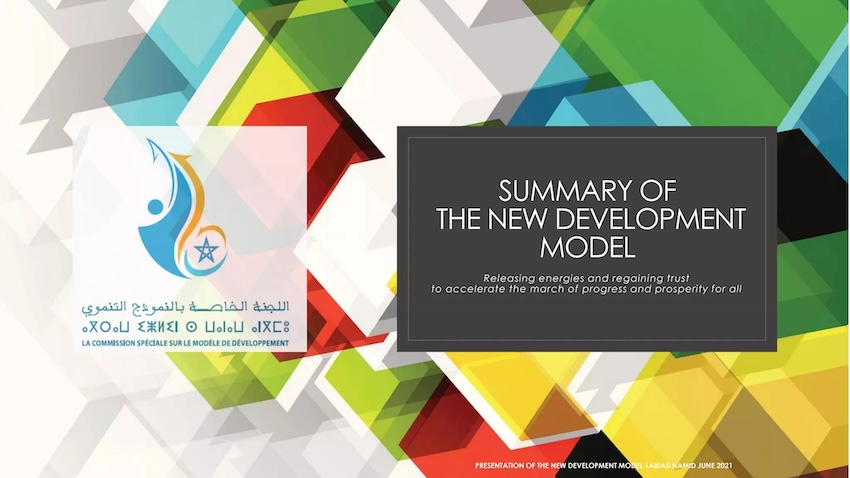
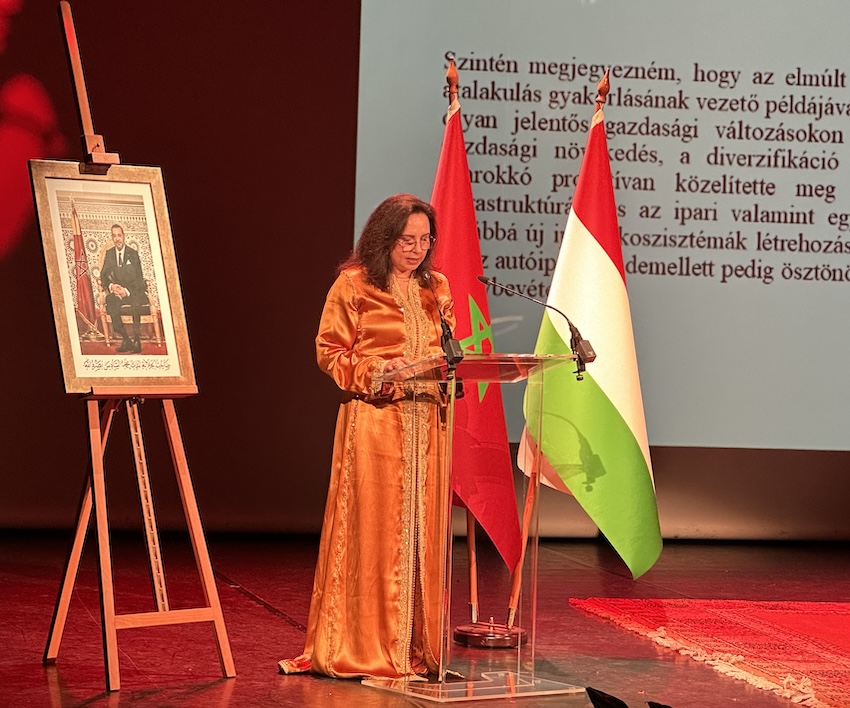
It is worth noting that over the past 25 years, Morocco has emerged as a leading example of sustainable development in the Global South and a hub for best practices in sustainability and societal transformation. Economically, Morocco has undergone significant changes marked by structural reforms and policies to promote economic growth, diversification and competitiveness. Morocco has adopted a proactive approach for investment, focusing on the development of transport infrastructure, industrial and special economic zones. It has also encouraged the implementation of industrial ecosystems in key sectors like aeronautics and automotive industry, while promoting renewable energy and innovative technologies.
Morocco, with His Majesty’s full commitment, has succeeded in outlining a specific diplomatic imprint based on the diversification of its partners, enabling the Kingdom to extend its economic and commercial relations globally. This includes the signing of multiple Free Trade Agreements with world-leading countries, including Gulf countries, Asia, the USA, as well as the implementation of a modern legal and regulatory framework that creates an attractive business environment.
Additionally, Morocco has strengthened its economic ties with neighbouring African countries, promoting bilateral trade and regional economic partnerships. This is part of His Majesty’s comprehensive vision towards Africa. South-South Cooperation is a strategic pillar of Morocco’s foreign policy, enabling major projects like the Morocco-Nigeria Gas Pipeline and the Royal Atlantic Initiative to facilitate access for Sahel countries to the Atlantic Ocean. These efforts aim to create an environment conducive to sustainable economic growth and improve living standards across the continent.
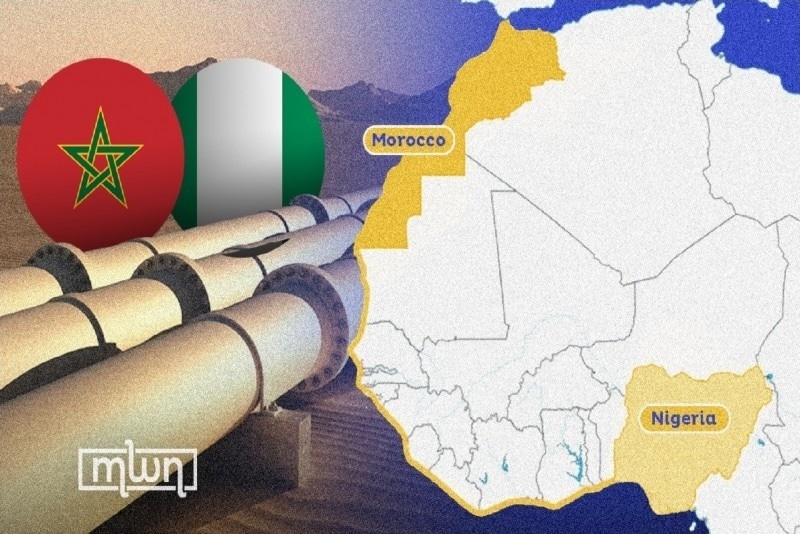
Furthermore, Morocco has been significantly engaged in sport diplomacy. Following the great results of the 2022 World Cup, Morocco will co-host he 2025 Africa Cup of Nations and the upcoming 2030 FIFA World Cup, together with Spain and Portugal as a sole candidate for the tournament. These events testify to Morocco’s efforts in promoting sport as a lever for sustainable development, tolerance, peaceful coexistence and building bridges between our youth.
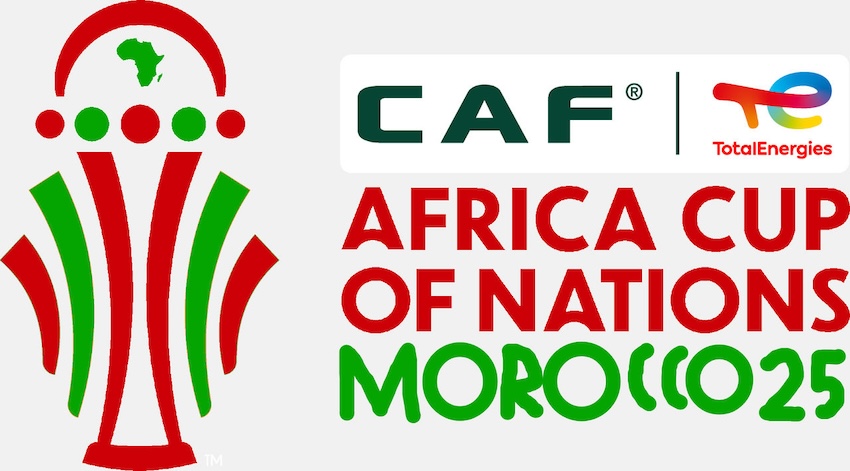
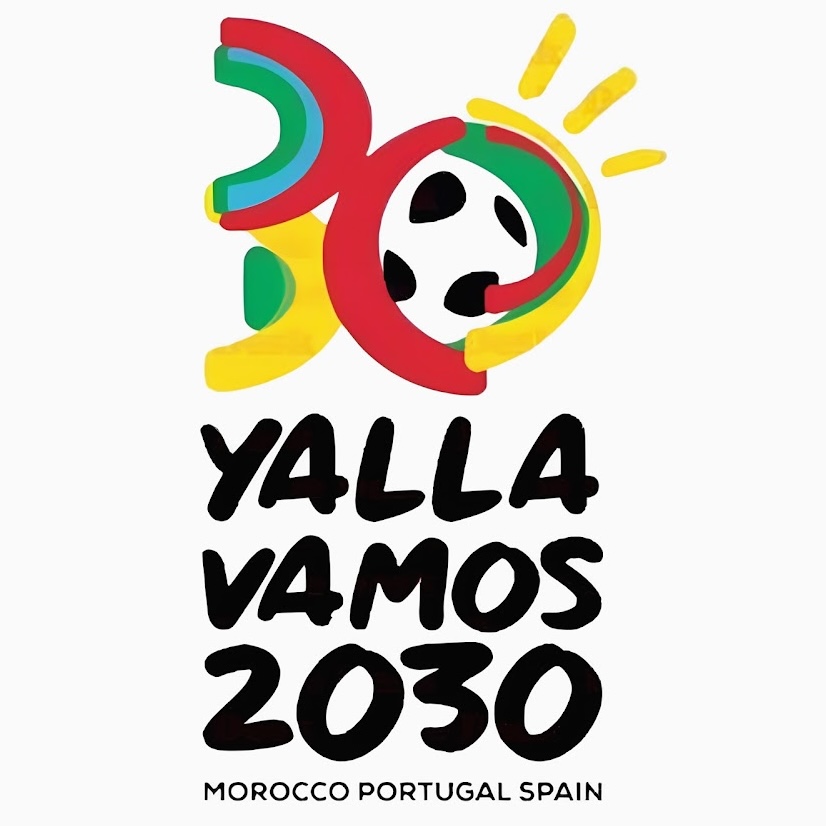
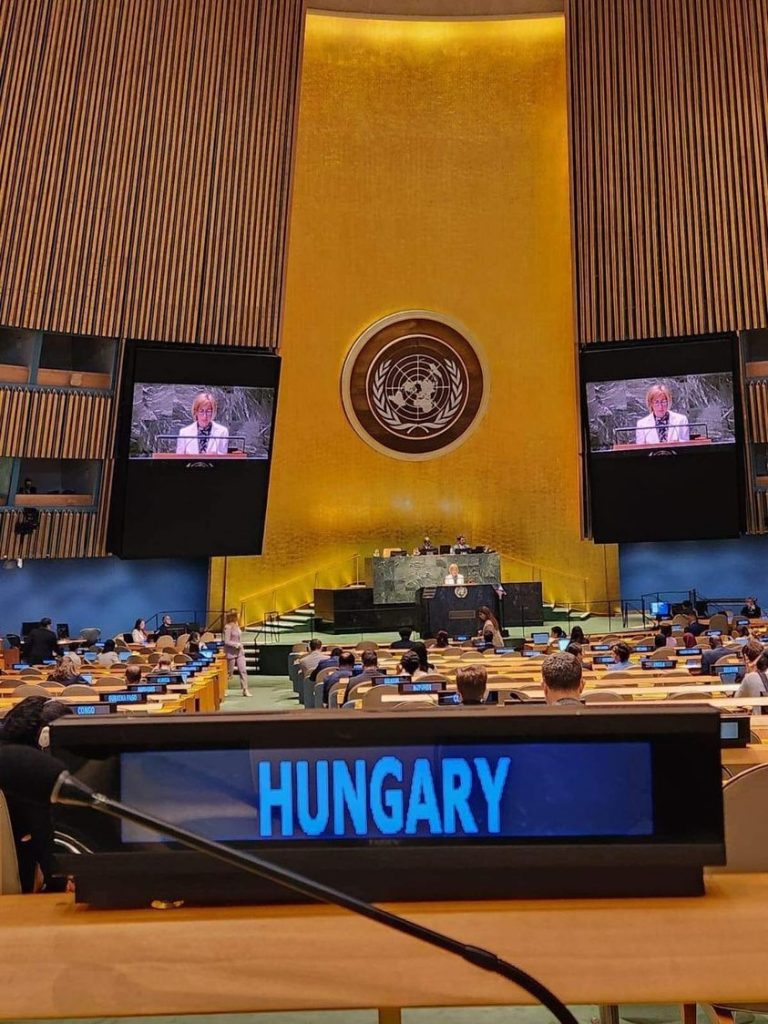
In this context, I congratulate Hungary for the UN’s adoption of its initiative to designate 19 May as World Fair Play Day. Morocco is honoured to be part of this initiative and is committed to working with Hungary to leverage sports for a culture of peace, respect, cooperation and humanism.
(The United Nations General Assembly at its 78th session on 1 July 2024 proclaimed 19 May as World Fair Play Day, in recognition of the spirit of fair play rooted in the Olympic ideal. From 2025 onwards, World Fair Play Day will be celebrated on 19 May.)
Distinguished Guests,
As we gather today to celebrate this joyous occasion, we also recognize the deep historical bonds that connect Morocco and Hungary. Our two nations have long had a tradition of friendship and mutual respect, founded on shared values and a common vision for a brighter future. Our relationship has evolved remarkably over the years, with strengthened political dialogue on issues of mutual interest at bilateral and multilateral levels. This is reflected in the significant exchange of high-level meetings, demonstrating a clear determination to enhance our cooperation and deepen our partnership.
Economically, relations between Morocco and Hungary have flourished, with increased trade, investment and joint ventures. Notably, Morocco has become Hungary’s leading trading partner in Africa. Both countries have collaborated to promote tourism, cultural exchanges and people-to-people contacts. Our partnership spans various sectors, including agriculture, renewable energy, educational and academic cooperation, water management and digitalization.
At the multilateral level, Morocco and Hungary understand the importance of joint action in tackling urgent global challenges. Our collaboration in international organizations and with the EU has been key in advancing peace, stability, and sustainable development through peaceful dialogue and diplomatic efforts. In this regard, I congratulate Hungary on assuming the rotating Presidency of the EU Council and wish them a successful term.
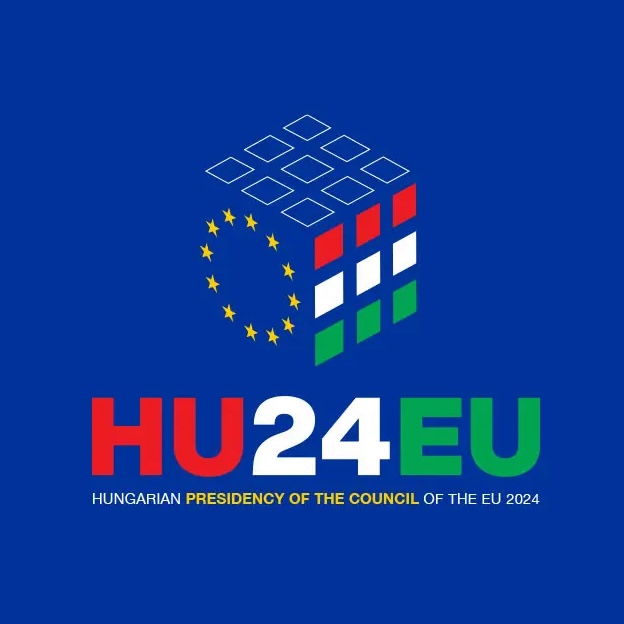
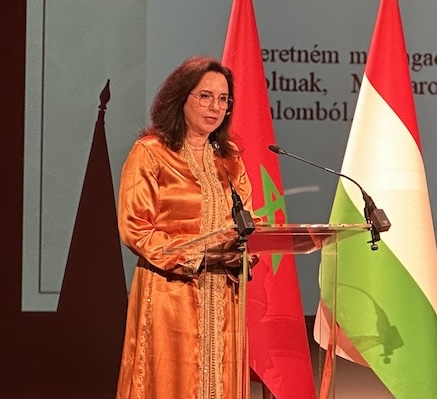
Lastly, I extend my heartfelt gratitude to the Hungarian Government for their ongoing support, cooperation and friendship. I also express my appreciation to the Moroccan community residing in Hungary and the Moroccan students, whose contributions significantly enrich the cultural ties between our nations. Special thanks to my team at the Embassy for their dedication and support, which have been crucial in strengthening this relationship and making today’s celebration a success.”
“Long live His Majesty King Mohammed VI! Long live Morocco! Long live the friendship between Morocco and Hungary!”
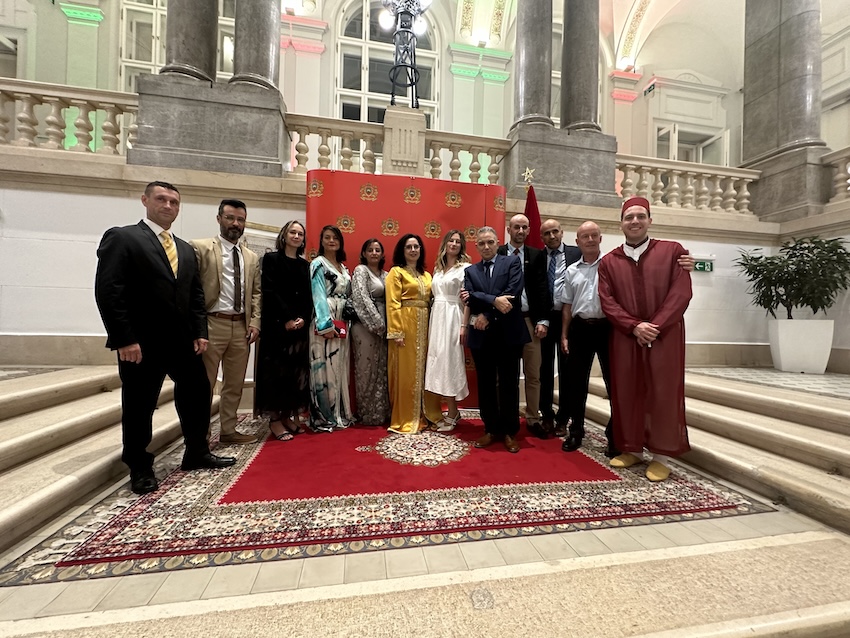
With great pleasure and profound respect, the esteemed Guest of Honour representing the Hungarian Government, Dr. Zsolt Semjén, Deputy Prime Minister of Hungary, delivered his address:
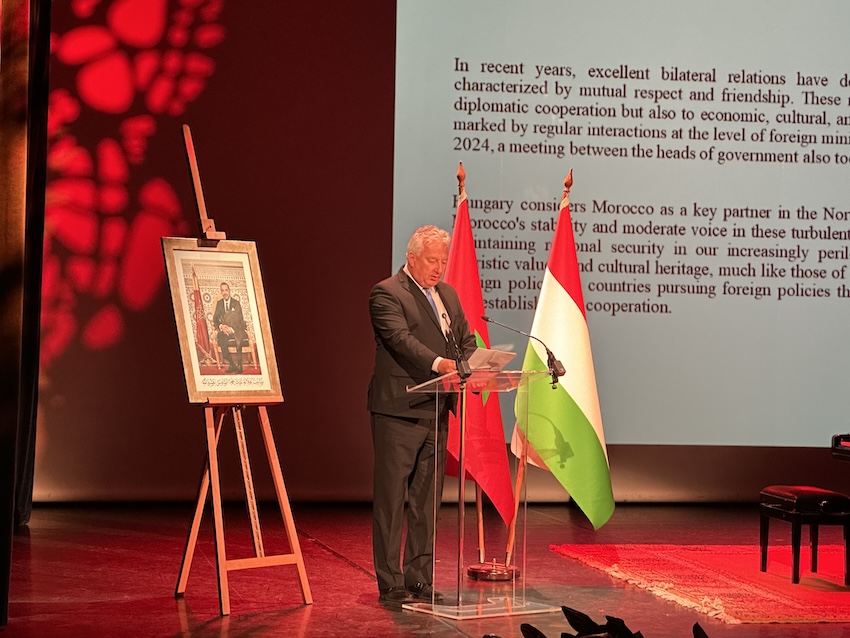
“Honourable Ambassador, Dear Guests, Ladies and Gentlemen,
In recent years, excellent bilateral relations have developed between Hungary and Morocco, characterized by mutual respect and friendship. These relations extend not only to the 65 years of diplomatic cooperation, but also to economic, cultural and educational ties.
Our political relations are marked by regular interactions at the level of foreign ministers and different sectorial ministers, and in 2024 a meeting between the heads of government also took place in Aziz Akhannouch Marrakesh.
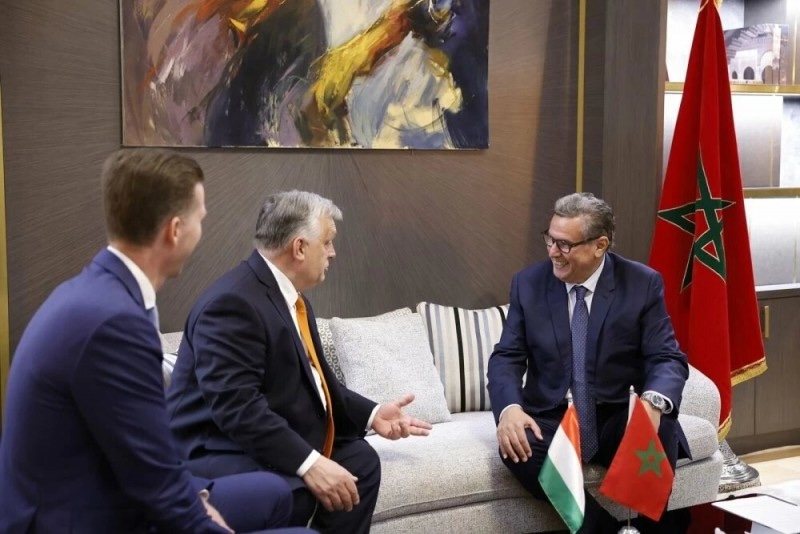
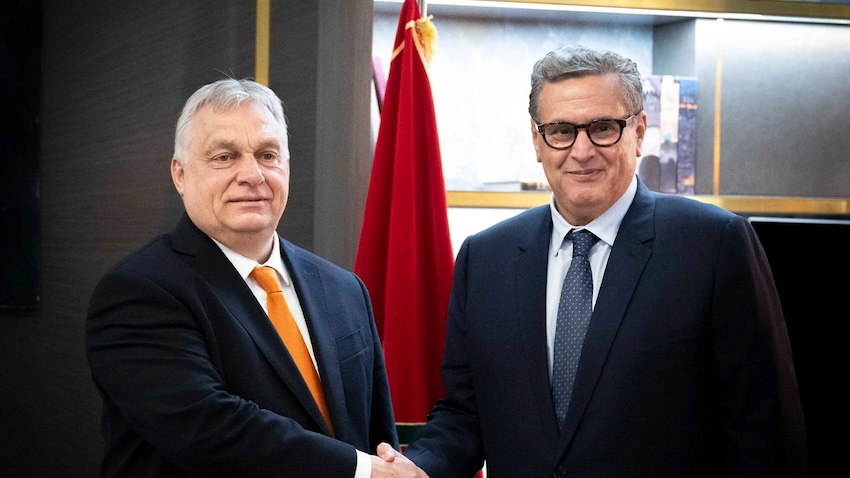
Hungary considers Morocco as a key partner in the North African region, and we greatly appreciate Morocco’s stability and moderate voice in these turbulent times. Morocco plays a fundamental role in maintaining regional security in our increasingly perilous international environment. Its stability, touristic values and cultural heritage, much like those of our own country, are defining elements of its foreign policy. As countries pursuing foreign policies that represent sovereign national interests, we can establish close cooperation.
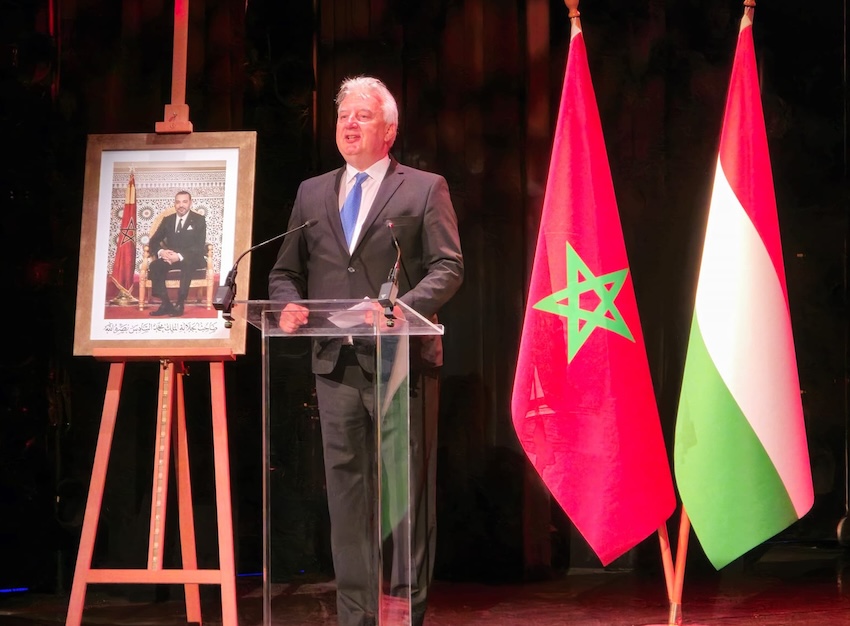
The best way to stop migration is to eliminate the root causes that trigger it, and therefore Europe needs to build genuine partnerships and effective cooperation with countries capable of guaranteeing Africa’s stability. Morocco is one of the pillars of African stability and one of the main bastions of Europe’s North African defensive line. Through effective cooperation with Morocco and well-targeted African development programs, we can achieve our strategic goal: to stop the migratory waves from Africa to Europe. We welcome and support the Kingdom’s regional steps against terrorism and migration, as well as its open stabilizing policies.
Trade between our two countries is continuously growing, and numerous Hungarian companies have found their place in the Moroccan market. Morocco has become our number one economic partner on the African continent, and it is in our mutual interest to support our economic actors in maintaining and further developing this momentum.
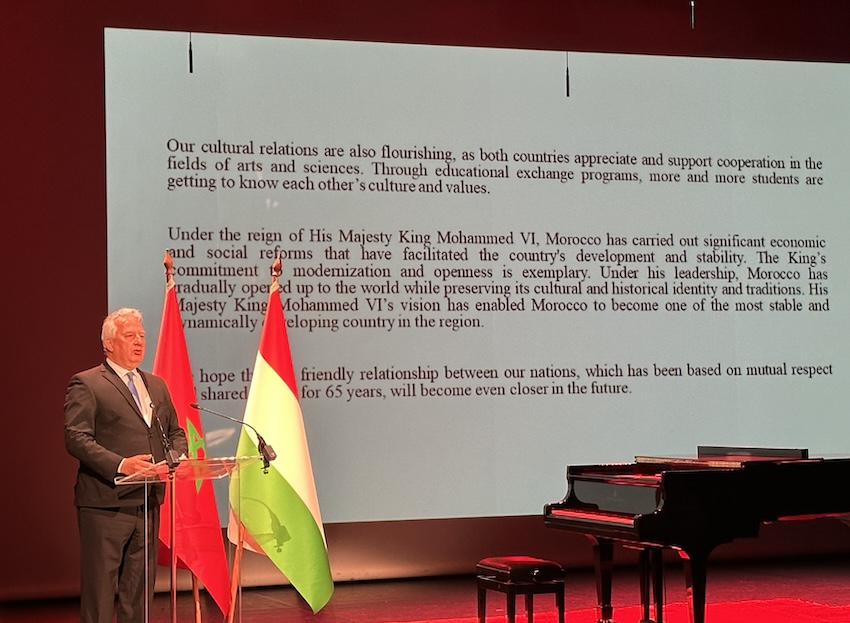
Our cultural relations are also flourishing, as both countries appreciate and support cooperation in the fields of art and science. Through educational exchange programs, more and more students are getting to know each other’s culture and values.
Under the reign of His Majesty King Mohammed VI, Morocco has carried out significant economic and social reforms that have facilitated the country’s development and stability. The King’s commitment to modernization and openness is exemplary. Under his leadership, Morocco has gradually opened up to the world while preserving its cultural and historical identity and traditions. His Majesty King Mohammed VI’s vision has enabled Morocco to become one of the most stable and dynamically developing countries in the region.
We hope that the friendly relationship between our nations, based on mutual respect and shared values for 65 years, will become even closer in the future. Thank you!”
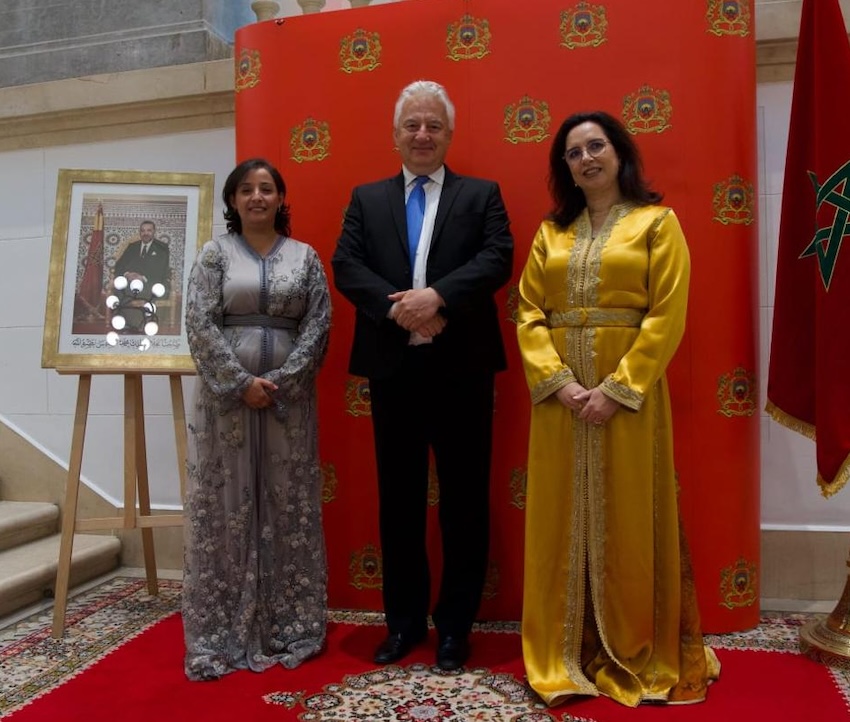
Solo Piano Concert by Dina Bensaid
The evening transitioned into a captivating piano concert by renowned Moroccan pianist, Ms. Dina Bensaid. With exquisite artistry and technical brilliance, she delivered a spellbinding performance that left the audience in awe. Her selections included four of Frédéric Chopin’s evocative Nocturnes, Franz Liszt’s fiery Rhapsodie Espagnole, and the iconic Rhapsody in Blue by George Gershwin. Each piece was brought to life by her masterful interpretation, seamlessly blending emotional depth with virtuosic skill. Her insightful commentary on the compositions and their composers added an enriching layer to the experience. The audience, mesmerized by her performance, rewarded her with well-deserved, thunderous applause. A true testament to her mastery, Ms. Bensaid’s solo concert was nothing short of extraordinary.
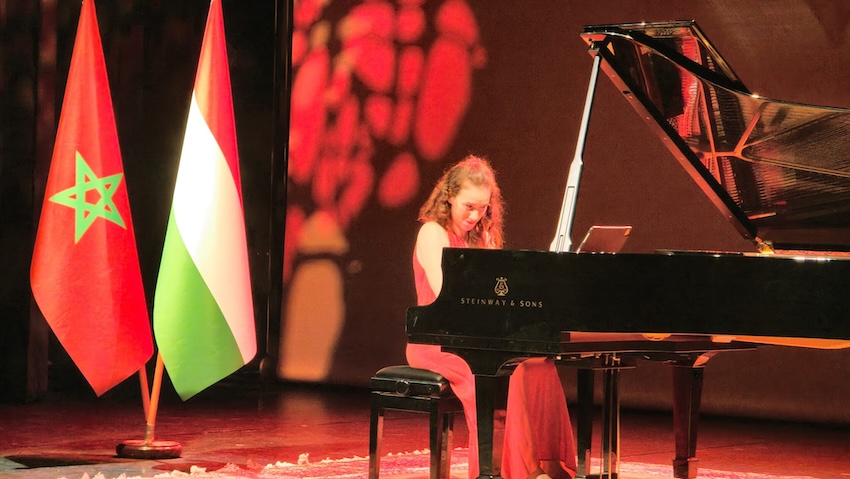
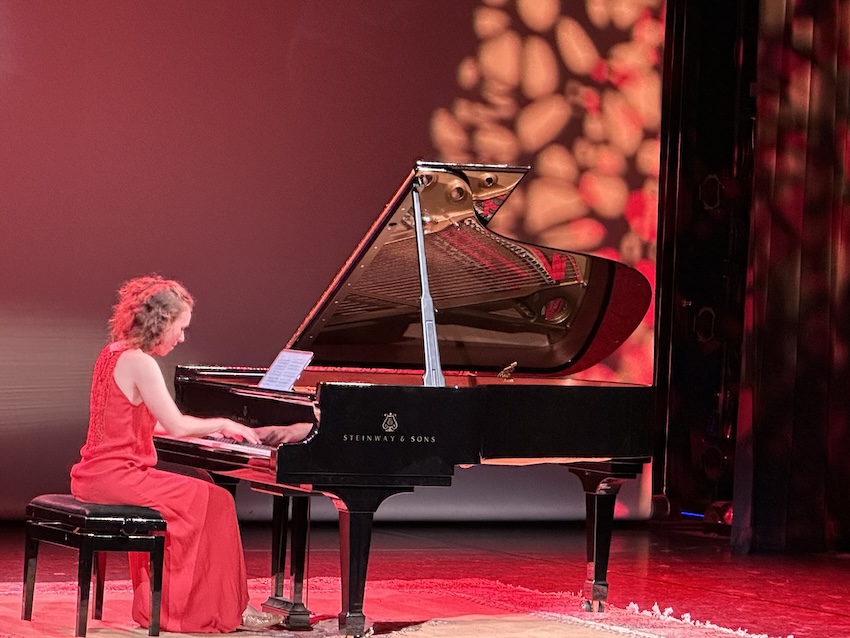
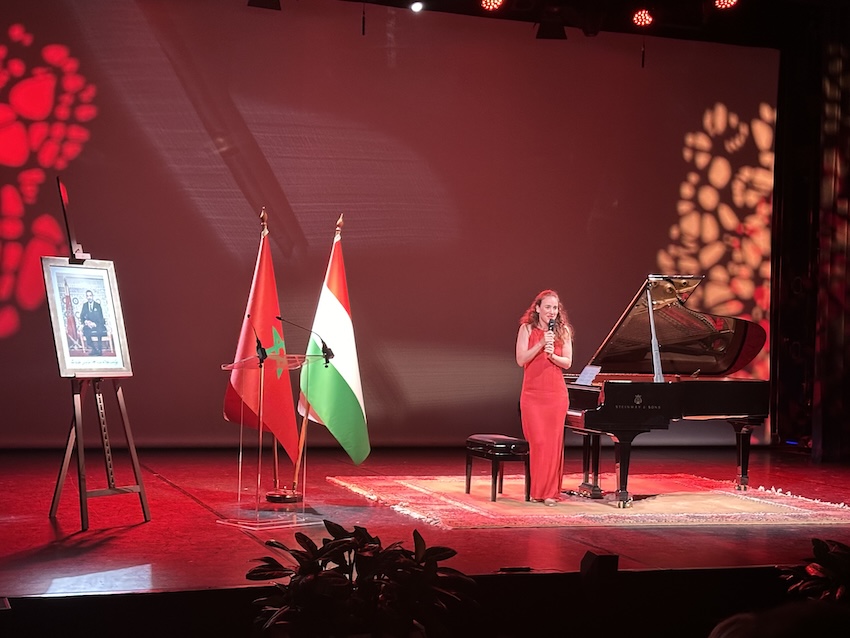
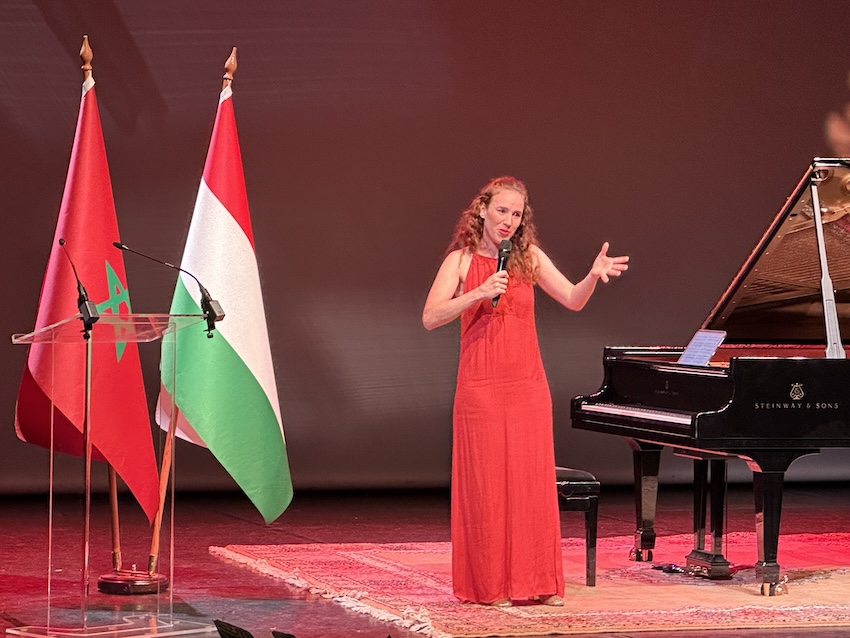
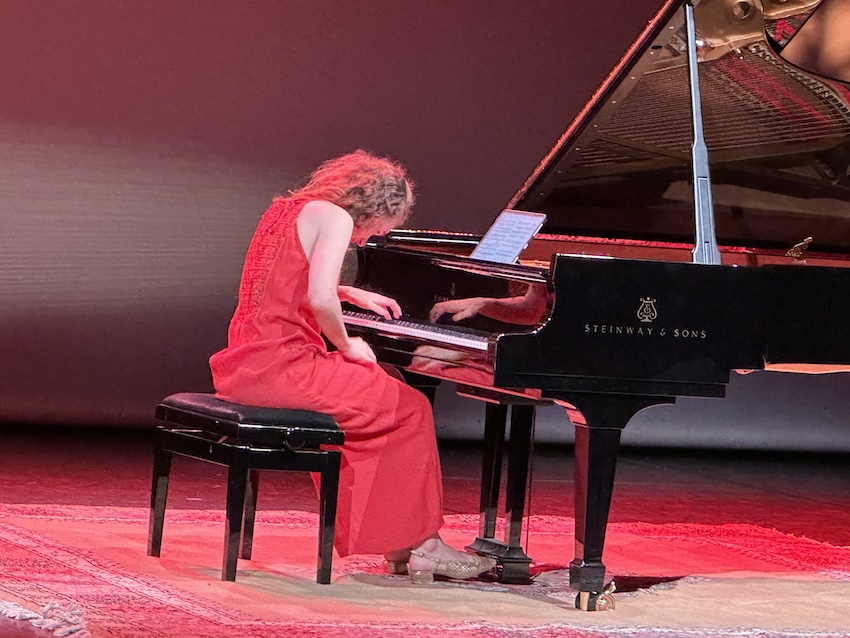

Reception showcasing the Moroccan cuisine
The evening culminated in a lavish reception showcasing the rich and vibrant flavours of Moroccan cuisine. Guests were treated to an exceptional array of dishes, each meticulously crafted using authentic Moroccan ingredients and spices. Prepared by expert Moroccan chefs, the menu offered a delightful journey through the country’s culinary heritage. The selection of desserts, equally impressive, was a feast for both the eyes and the palate, with each sweet delicacy reflecting the intricate artistry of Moroccan patisserie.
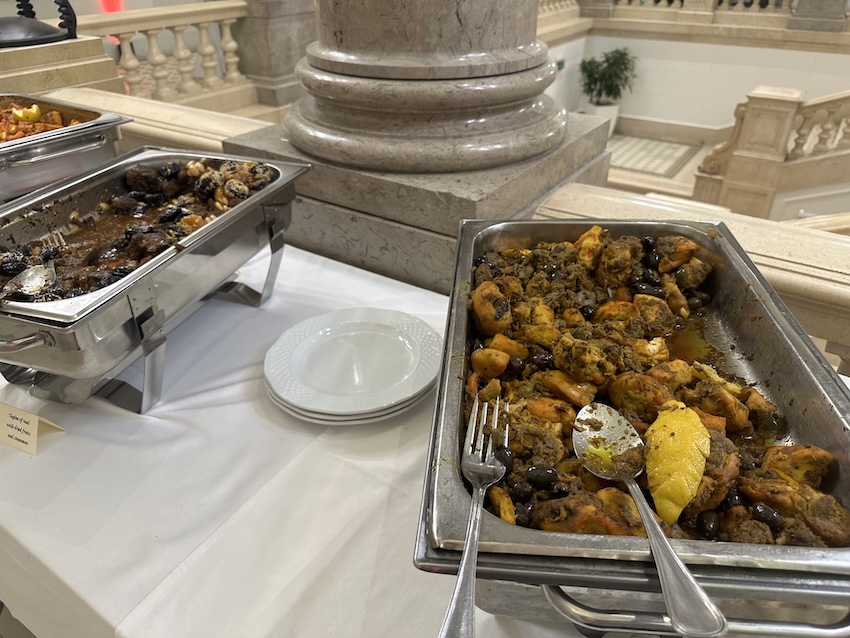
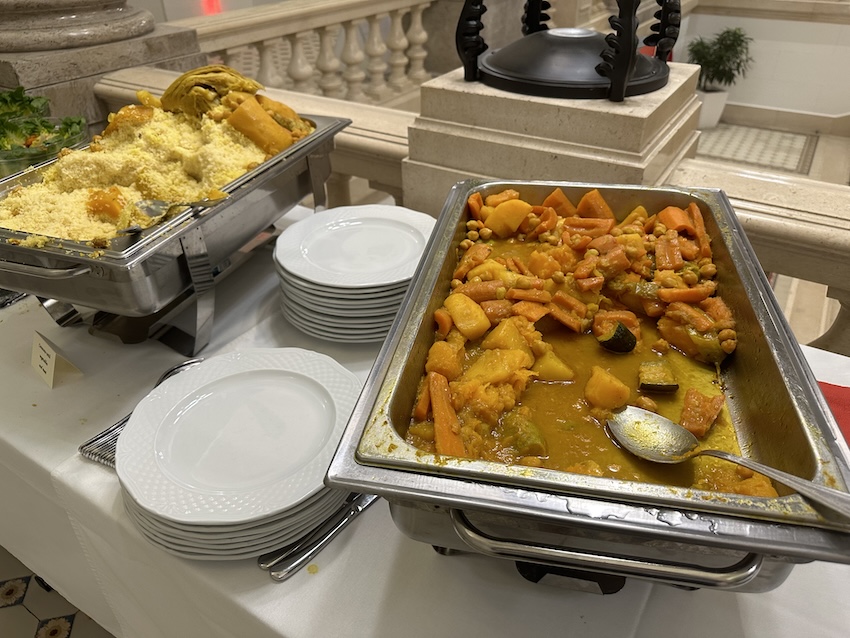
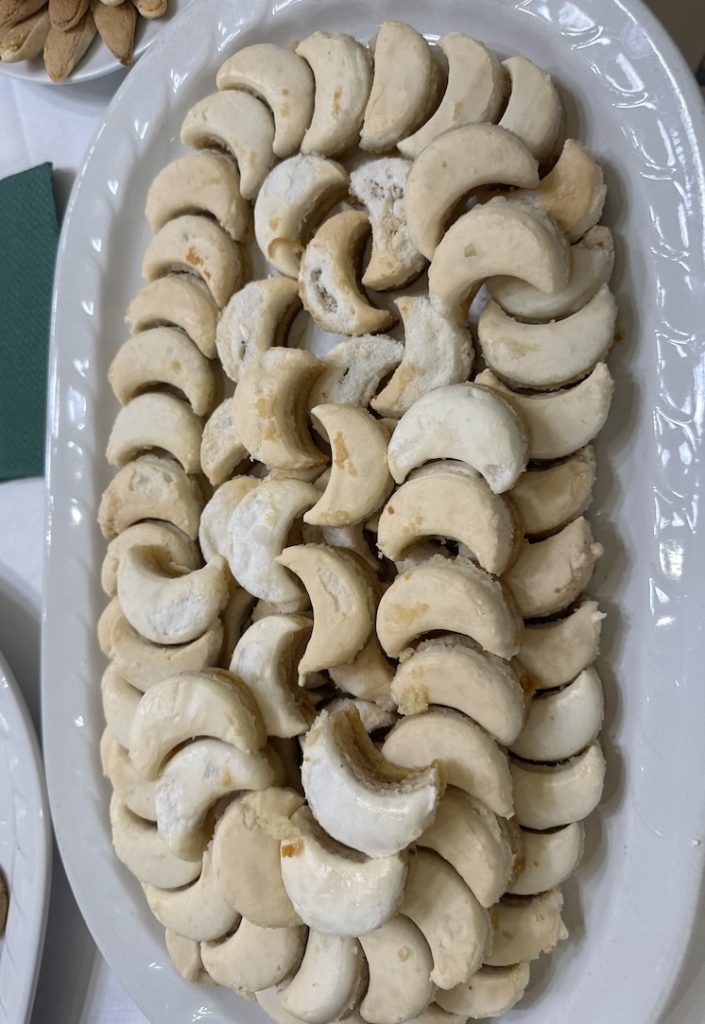
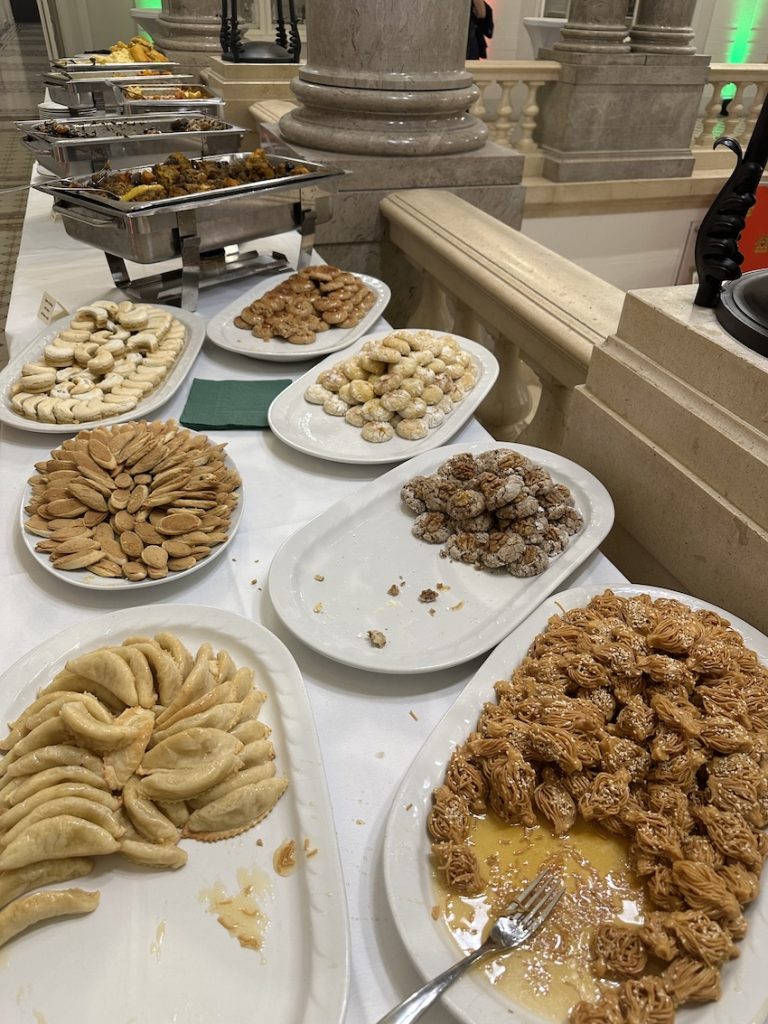
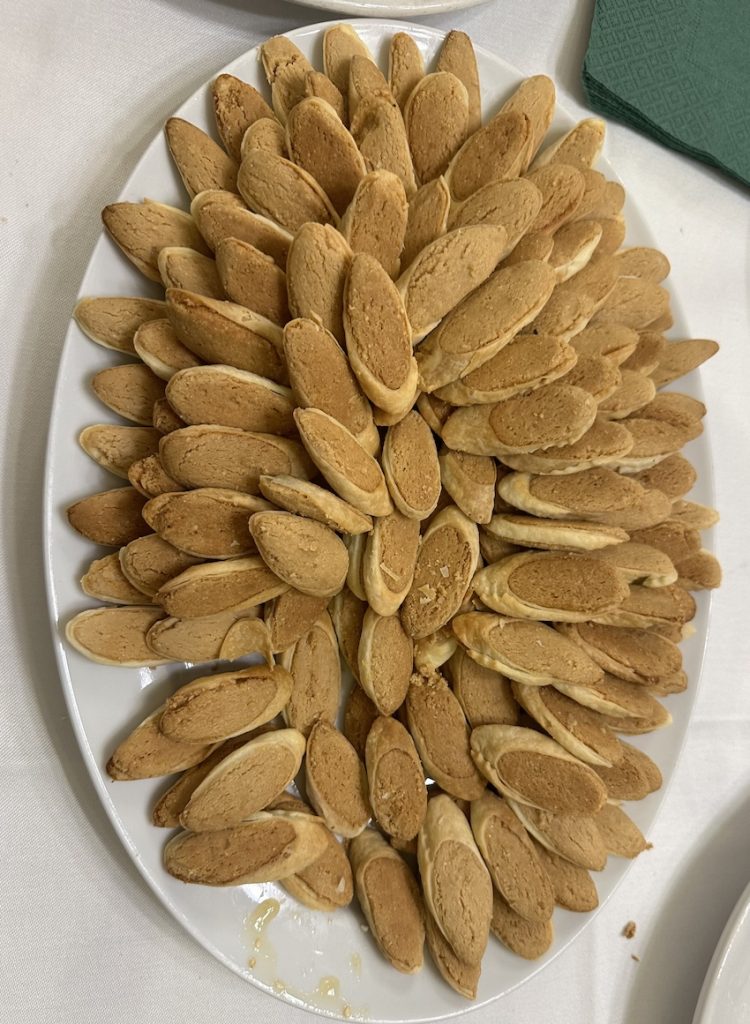
A highlight of the evening was the ceremonial service of mint tea, performed by an expert well-versed in traditional Moroccan rituals. With graceful precision, the tea master poured the fragrant brew from ornate silver teapots held high, creating a mesmerizing arc of liquid that seamlessly filled each glass. This artful presentation not only showcased the deep-rooted customs of Moroccan hospitality, but also enchanted guests by representing the rich tapestry of Moroccan culture. The blend of fresh mint, green tea and spices perfectly complemented the sumptuous dishes and desserts.
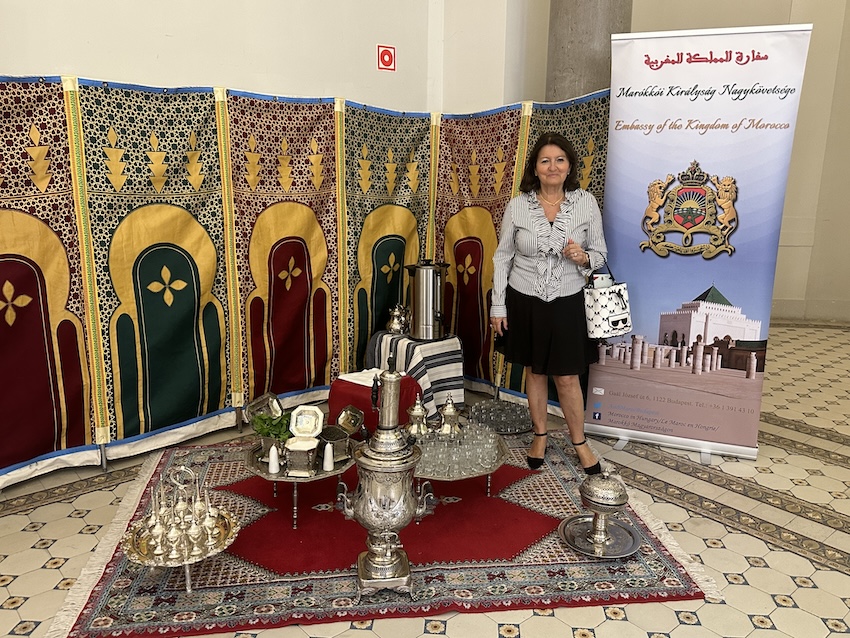
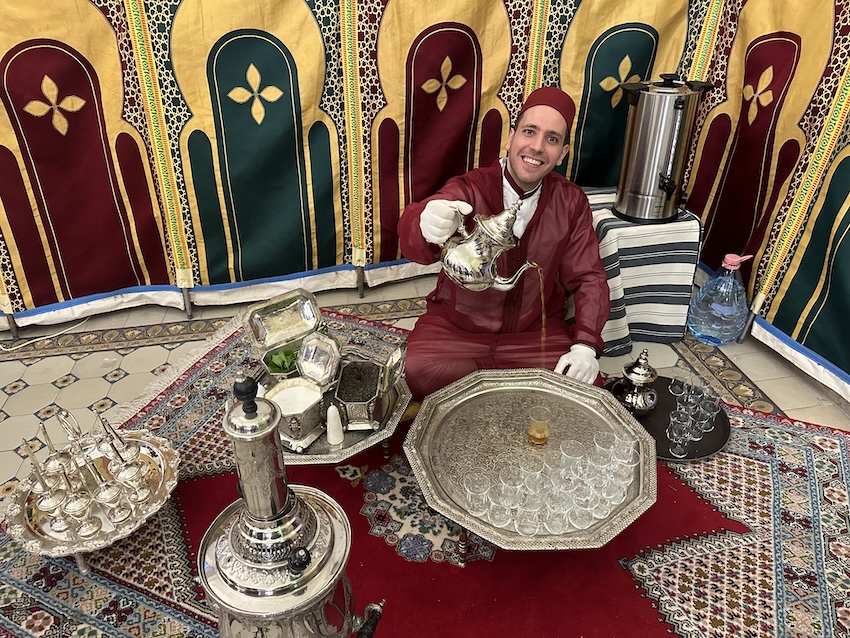
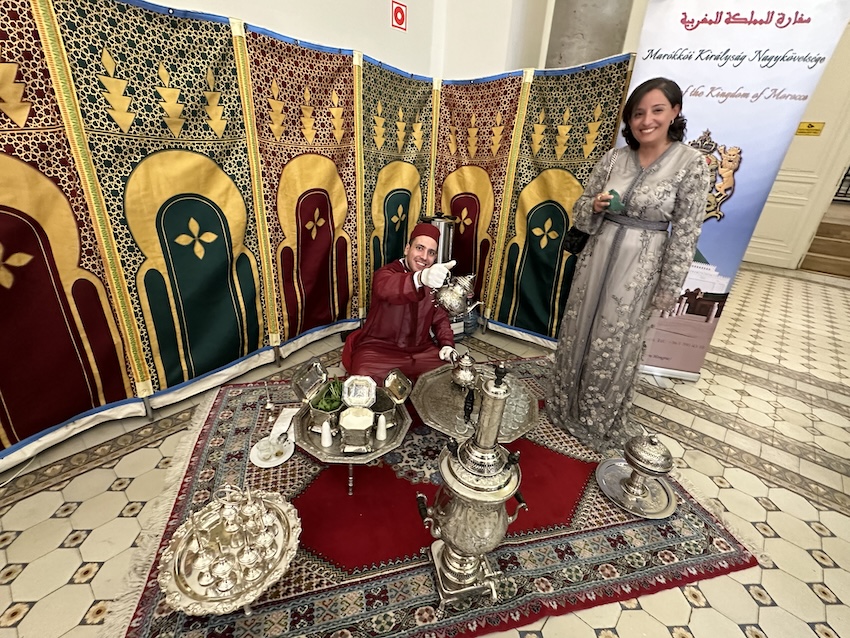
This stylish event, dedicated to two significant anniversaries, was a true homage to timeless Moroccan hospitality and culinary excellence. The reception enhanced the evening, adding authenticity and sophistication that left a lasting impression and a memorable experience for all in attendance.

Source: Embassy of the Kingdom of Morocco in Budapest
Photos by the Embassy of Kingdom of Morocco in Budapest and DPA


